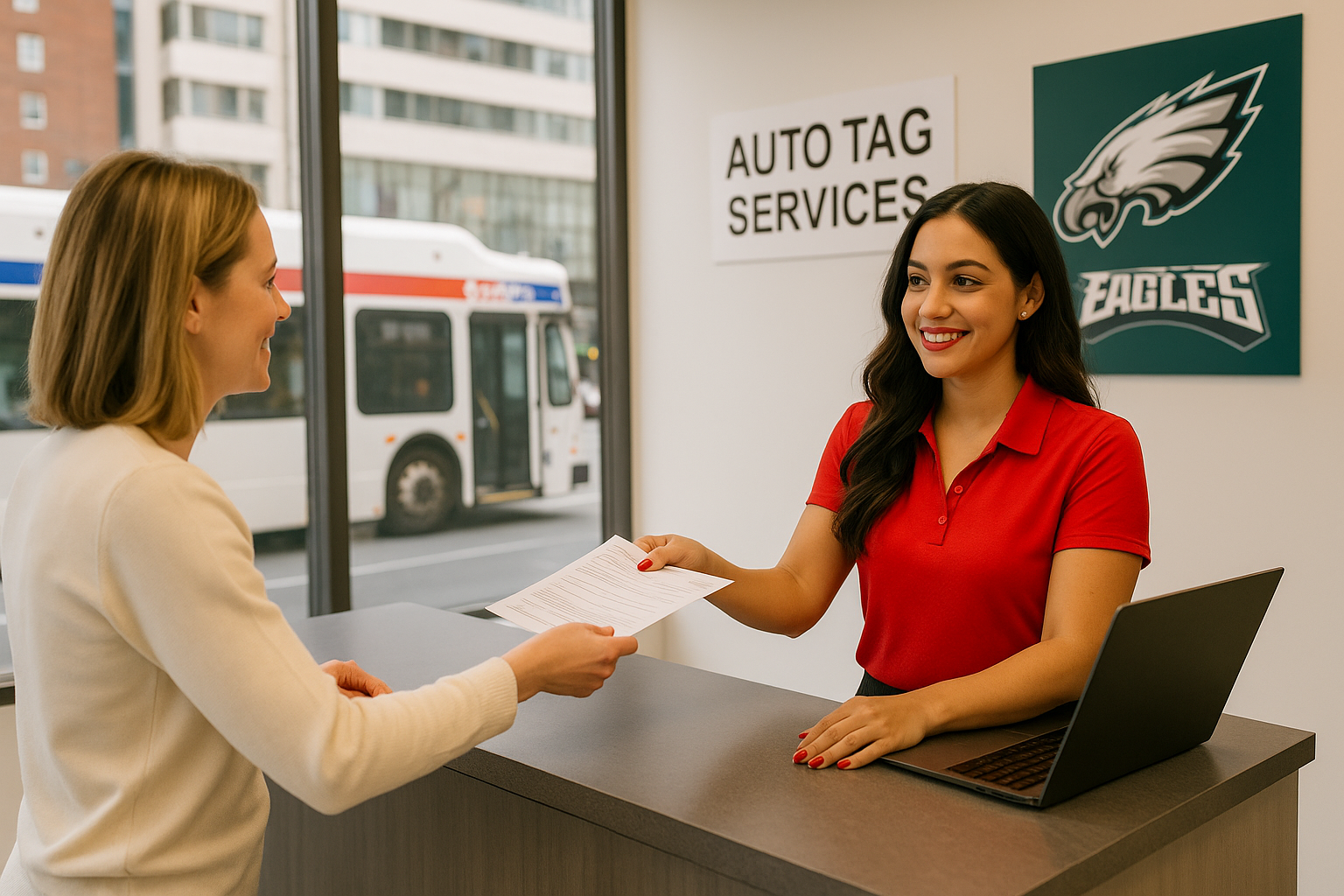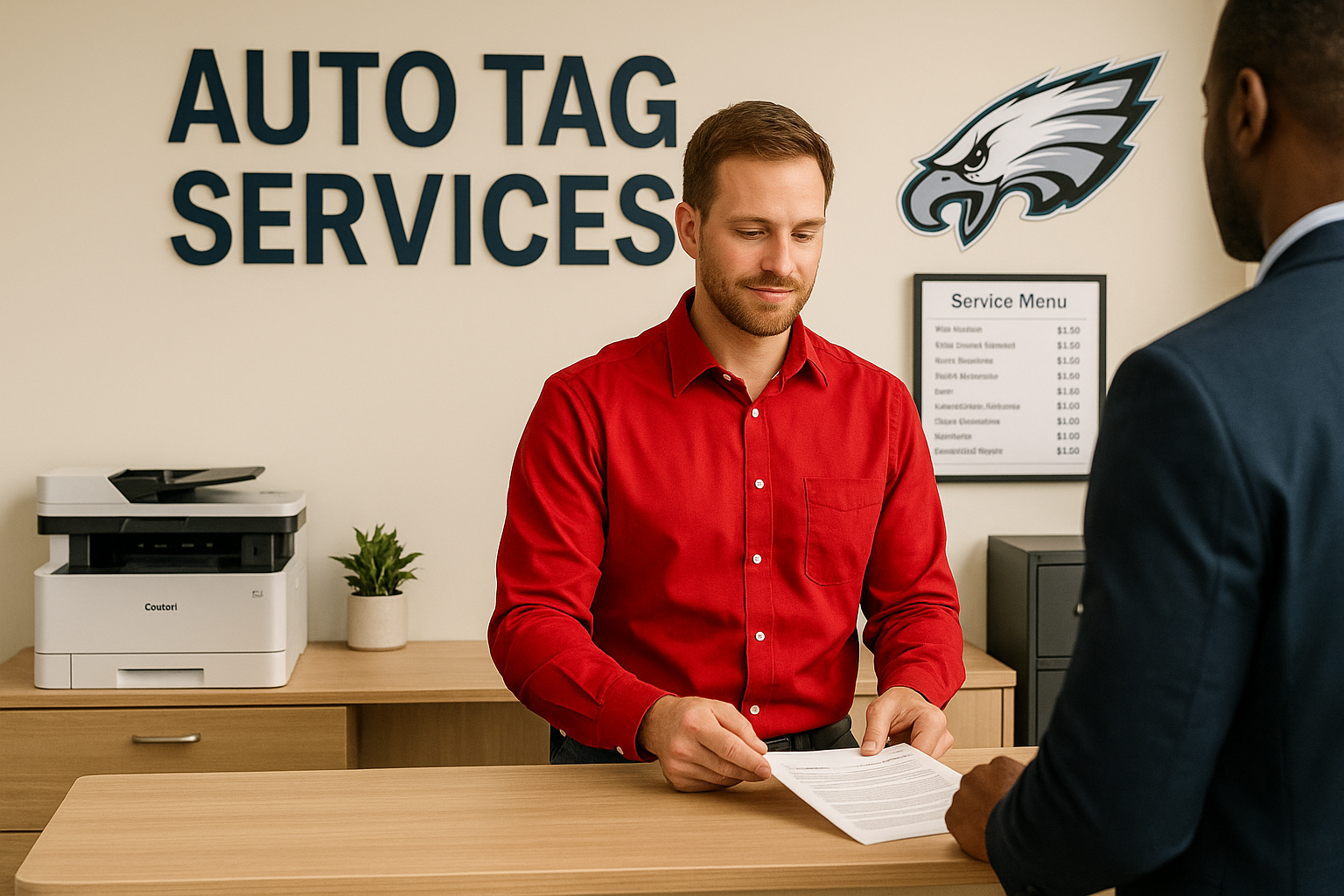Opening a full-service Auto Tag Agency in Pennsylvania isn’t just a business move — it’s a life move.
When I opened my first agency, I thought paperwork and patience would be enough. I learned fast: success lives in the details no one warns you about.
Most first-time owners hit costly roadblocks, not because they’re lazy, but because the real-world process is rarely explained in plain English.
Let’s fix that.
Here’s what it really takes to open a successful PennDOT-authorized Auto Tag Agency — plus a shortcut to fast-track your first 30 days.
Step 1: Build Your Legal Foundation Like a Pro
Before you think about plates or customers, think about your structure. This isn’t a side hustle — it’s a licensed, regulated business that deals with government trust funds.
At a minimum, you’ll need:
- A properly registered LLC or Corporation (no sole props if you’re serious)
- A Pennsylvania business license (city/county dependent)
- A Federal EIN (Employer Identification Number)
Treat your legal setup as the first indicator that you’re building a real agency, not a hobby.
Step 2: Secure Your Bond, Insurance, and Compliance Standards
PennDOT doesn’t hand out Full Agent contracts like candy. They’re looking for credible, financially stable partners.
Here’s what’s mandatory:
- A $30,000 Surety Bond (specific to issuing agents)
- A clean financial and criminal record (no tax liens, no fraud flags)
Smart operators go further:
- Business insurance covering liability, cyber risk, and employee dishonesty
The sooner you act like a fully insured, bonded professional, the faster PennDOT will take you seriously.
Step 3: Choose a Location That Works as Hard as You Do
Location isn’t just about traffic counts. It’s about zoning compliance, security, and visibility.
Your location must:
- Be a true, physical walk-in site (no PO Boxes, no “virtual offices”)
- Have zoning approval for automotive/financial services
- Allow for physical security upgrades (bolted safes, divided workspace)
Hot Tip: Position yourself near used car lots, insurance agencies, and mechanic shops. Go where your future customers already are.
Step 4: Security — The Deal-Maker (or Deal-Breaker)
You’ll be trusted with license plates, registration stickers, personal data, and thousands in public funds. PennDOT expects serious safeguards, like:
- Anchored safes
- Cross-cut shredders (strip-cut isn’t enough)
- Alarm systems
- Clear division between public and restricted spaces
📸 Tip: Take photos of your security setup before inspection. Show PennDOT you’re prepared.
Step 5: Pass PennDOT’s First Site Inspection Like a Pro
Before you ever issue a plate, you’ll be inspected. Expect your investigator to check for:
- Proper professional signage
- Secured inventory (plates, stickers, temp tags)
- Visible authorization certificates
- Fraud hotline posters (in plain sight!)
- A clean, organized, welcoming layout
Quick Story: One operator delayed launch by 60 days because the fraud hotline sign was taped behind a filing cabinet.
Step 6: Protect Your Cash Flow — Or Risk It All
PennDOT funds are trust money. If you co-mingle those with your business revenue, you’re risking your contract—and potentially more.
- Open a separate escrow account for PennDOT funds
- Open a separate operating account for your income
- Reconcile DAILY (not weekly)
Every dollar must be traceable. Handle state funds like sacred money.
Final Thoughts: Don’t Launch Blind — Launch Ready
Opening a compliant, profitable agency isn’t about good intentions. It’s about a playbook — one that most new operators don’t get.
That’s why we created the Auto Tag Agency Launch Kit.
- 🧭 10 Critical Steps to Launch With Confidence
- 🚫 The 5 Biggest Mistakes New Agents Make
- 📅 A 7-Day Fast-Launch Calendar
- 💸 Cash Flow Protection Strategies From Day One
Don’t guess your way through this. Download the kit, follow the roadmap, and build an agency that earns trust—and income—from Day One.
You’ve got this. We’ve got your back.




